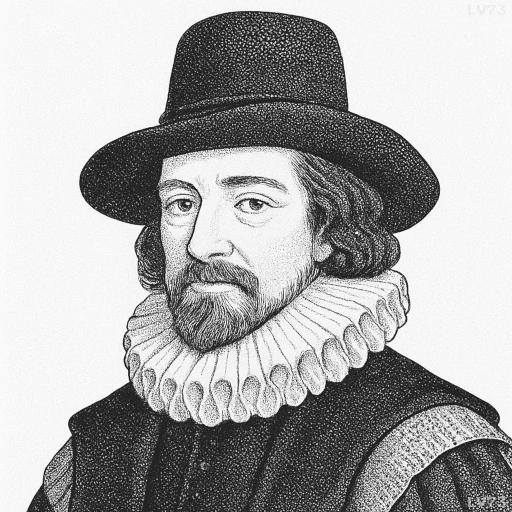“What is truth? said jesting Pilate; and would not stay for an answer.”

- January 22, 1561 – April 9, 1626
- Born in England
- Philosopher, theologian, jurist, politician, aristocrat
table of contents
Quote
“What is truth? said jesting Pilate; and would not stay for an answer.”
Explanation
In this quote, Francis Bacon refers to the moment in the Gospel of John when Pontius Pilate, the Roman governor, asks Jesus, “What is truth?” but then quickly dismisses the question, showing a lack of genuine interest in its answer. Bacon uses this Biblical reference to reflect on the elusive nature of truth and how it is often questioned or dismissed by those who are not truly seeking it. Pilate’s jesting attitude toward the question suggests that the concept of truth can be too complex, uncomfortable, or inconvenient for some people to engage with seriously. Bacon may be emphasizing that truth is not always easily grasped or understood, and that those who are not willing to confront or consider it may simply avoid it, much as Pilate did.
Bacon’s view aligns with his broader philosophy, which emphasized the importance of empirical inquiry and the search for knowledge. During the Renaissance, thinkers were beginning to challenge traditional ideas and explore new ways of understanding the world, often questioning the accepted truths of religion and philosophy. Bacon himself was a champion of the scientific method, which sought to uncover truth through observation, experiment, and rational analysis. The quote highlights the idea that while truth may be difficult or uncomfortable, it is essential for progress and intellectual growth, and that it requires a willingness to engage with it, rather than dismissing or avoiding it.
In modern times, this quote remains relevant in discussions about philosophy, science, and even politics. The nature of truth—whether in terms of facts, values, or moral judgments—continues to be questioned and debated. In the context of critical thinking, we are reminded that truth is not always simple or convenient; it requires effort and honesty to seek and understand. Bacon’s insight encourages us to resist the temptation to avoid hard questions or complex truths, as confronting them is necessary for growth, understanding, and genuine progress.
Would you like to share your impressions or related stories about this quote in the comments section?



